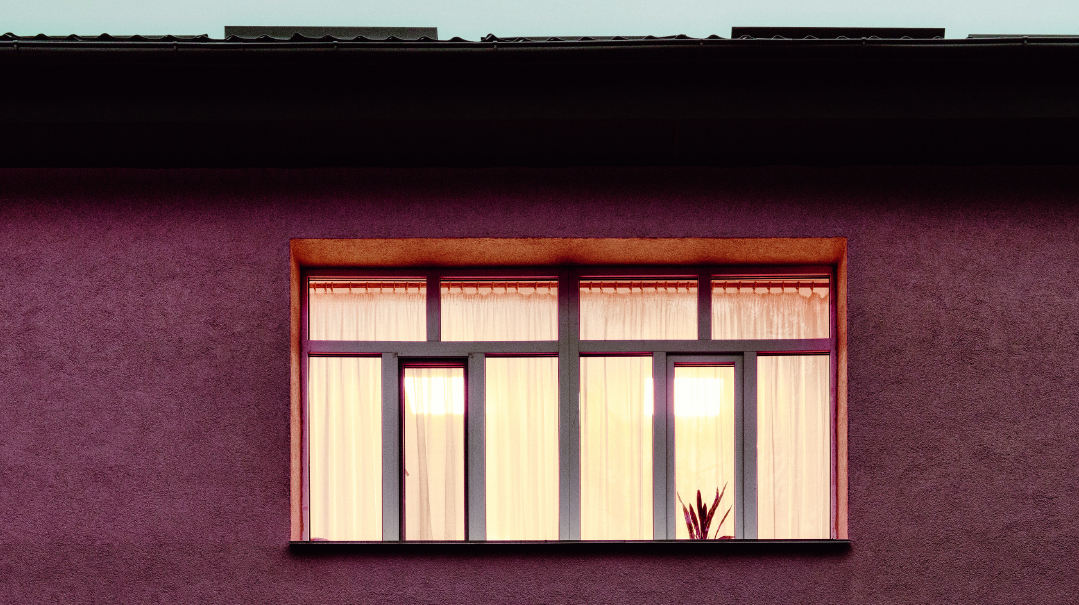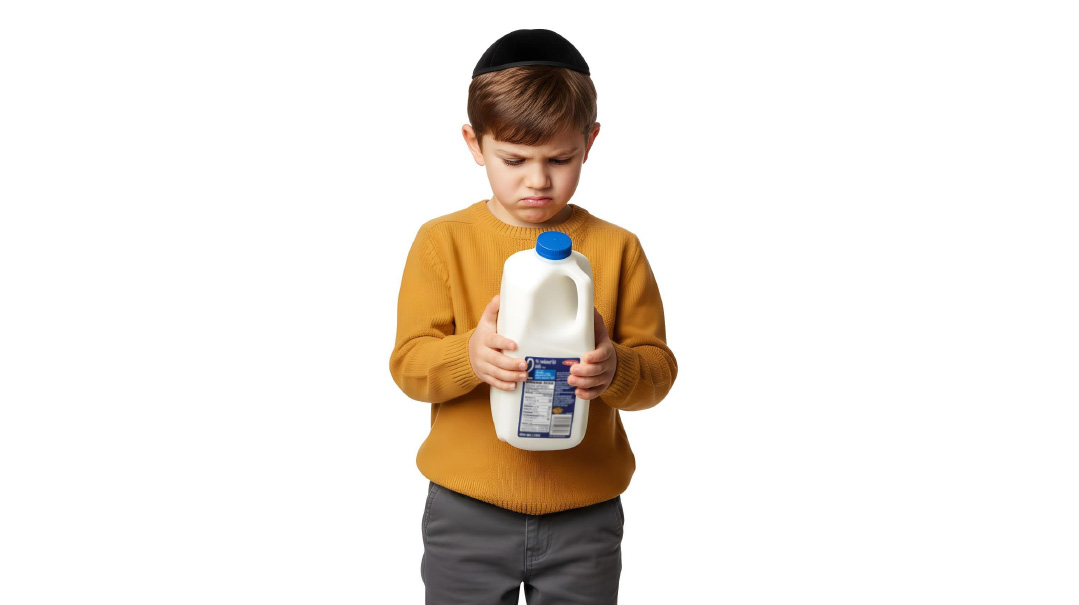A Song in the Night

I try to pull myself together, when I hear it. Somebody outside, strains of song. I open the window and a voice carries inside. “Mah nishtanah halaylah hazeh, halaylah hazeh…”

As told to Rivka Streicher
"Can’t we just cancel Pesach this year?” she asked me.
I would’ve laughed, if I weren’t almost in tears.
It was two weeks into COVID, and only a handful of us essential workers were still coming into the nursing home, stretching ourselves thin to fill huge gaps.
Fear stalked the hallways. A million-and-one new safety considerations, which no one could wrap their head around. As activity director, I was trying desperately to keep things going while the legislation poured in — six-feet distance, masks in public places, full lockdown.
And oh, I was charged with making Yom Tov.
Pesach is a huge project in the nursing home. Cleaning, kashering, the food, and keeping track of everything, down to the chometz medication some residents need to take.
We hold a huge Seder and try to accommodate everyone’s minhagim. Gebrochts, non-gebrochts; square matzos, round matzos, spelt matzos. Haggados in Hebrew, English, and Yiddish. Every type of karpas. It’s a Yom Tov that holds so much significance to our residents, whatever their religious level, whatever their faculties. And often, when there’s so little left, Pesach means even more.
And now this non-Jewish staffer wanted to know why we couldn’t push off Pesach.
“The show must go on,” I tell her.
By Erev Pesach, several residents aren’t feeling well; we label them “COVID patients” and confine everyone to their rooms.
As the sun goes down, I stand in the empty social hall and kindle two small lights, my eyes blurring, thinking of the hundreds of winking flames the women can’t light tonight.
The table is set, but the residents aren’t coming down to sit together. Instead, the rabbi and I are going to dismantle the place settings one by one and bring the Seder to them.
We have to go room to room, and to avoid the spread of infection, we need to wear hazmat suits. Hairnet, mask, goggles. I pull on the bulky, white suit and cringe. I’m going to have to parade around in trousers.
I know I look as bad and as frightening as the rabbi does. How are the residents going to recognize us under these strange getups? How can this be the way?
But it’s the only way tonight. I knock on the first door with a trolley, a plastic Seder plate, a plastic Kiddush cup, and a basic Haggadah.
I go in, explain who I am and what’s going on. I help the resident make Kiddush, page through the Haggadah, and tell him to repeat after me: Pesach, Matzah, Maror.
After each room, I change head to toe and wipe down everything with sanitizer. Salt water sloshes. The suit is scratchy and hot.
“Why is the shul closed?” an old man asks me. “They don’t let us pray together? Is there another war?”
They are coming, these octo- and nanogenarians, from the blackest of contexts. The trauma of their youth lies just beneath the surface. “Is there going to be bombing?” “Why aren’t we protesting, doing something, fighting back?”
Their fear is heightened by the horrific way in which we’re dressed. I try to reassure them, but inside I’m breaking. I don’t know if I’m doing the right thing, I don’t know if I can so much as pat an old woman on the back to calm her.
“Where are my children? Are they safe?” Mrs. X wants to know. “Can you call my son?”
I can’t even do that for her now.
Mr. Z demands to know where the zeroya is and why there aren’t potatoes for karpas (we’d put only radish on the Seder plate).
“I know there’s a war going on, there’s no food.”
“There’s plenty,” I tell him, but he’s hysterical and demands I show him.
I wheel him out of his room and take him down to the kitchen, usually a no-go area for residents. I point to the cordoned-off chometz area, and hold open the boards to show him the storeroom. I don’t know if I should’ve done that, but Mr. Z sees the food and calms down.
We do many non-ideal things that night. But what is ideal when the world is raining a deadly virus?
By the time I get to Dora’s room, I’m finished.
Dora’s new to the home. Her parents had been religious, but they died when she was young, and she was brought up by a secular uncle. She’d gone with the flow of his family, marrying someone from his circles, though inside she yearned for a different life. She had a good marriage, a good life, but when her husband died, she finally chose her own path, moving across the country, from the farm village where she was living to this frum facility, because she wanted to become fully observant in the time she had left.
I know how much Dora looks forward to each Yom Tov. Pesach is something she’s kept through the years, and doing it properly and fully rectifies the past, she’s told me.
I explain to her why we can’t have Kiddush downstairs. She’s visibly upset.
I open the basic Haggadah, which is in Hebrew of course, and kick myself. Why didn’t I bring an English Haggadah so that Dora could understand what she’s saying?
There’s no way I can leave the room to get another Haggadah now. I’d have to change my get-up, it would take too much energy, too much time.
The Hebrew text swims in front of my eyes, and it hits me again, how compromised tonight is.
I try to pull myself together, when I hear it. Somebody outside, strains of song. I open the window and a voice carries inside.
“Mah nishtanah halaylah hazeh, halaylah hazeh…”
It’s the son of a resident who lives on the ground floor. He can’t be with his mother, but he’s come to sing beside her window.
Dora and I are pressed to the glass, and I see other residents in other rooms, listening, brightening; transfixed by the tall man with the white beard who stands on the lawn, swaying and singing “Dayeinu,” “V’hi She’amdah,” Hallel.
When he’s sung through the Haggadah, he starts with a medley of traditional songs; Adon Olam, “A gantz yohr freilach…”
I sit with Dora, who needs this so badly. Both of us are crying.
I need this so badly. The whole night was about getting it done, getting everyone to make Kiddush, to say Pesach, Matzah, Maror. The stress, and the feeling that I need to protect them amid the fear, theirs and mine.
But this man, he’s shown up, and he brought Pesach to us. He gives us maybe an hour of glorious song, prayer, praise. Even on this night of painful compromise that seems only about poor man’s bread, we have a chance to transcend, to feel riches, freedom, unity of a nation, family; he’s put the heart back into our Yom Tov.
I want to tell him, but I dare not poke my white, goggled head out of the window. I stay just behind the window in Dora’s room, and listen as he sings of faith.
All through the evening the residents had cried from fear; they’re Holocaust survivors, their fears were rational and irrational, and I didn’t know what to say. The world’s gone mad again; was there reassurance?
But the man in the courtyard holds himself straight and sure. I know him vaguely, he’s a rabbi in the community; he’s brimming with emunah that we can feel and hear.
He turns up before his own Seder, like our very own Eliyahu Hanavi, and we sense so strongly that just like we got out of Mitzrayim, out of the Holocaust, we’ll get through this, too.
(Originally featured in Family First, Issue 736)
Oops! We could not locate your form.







